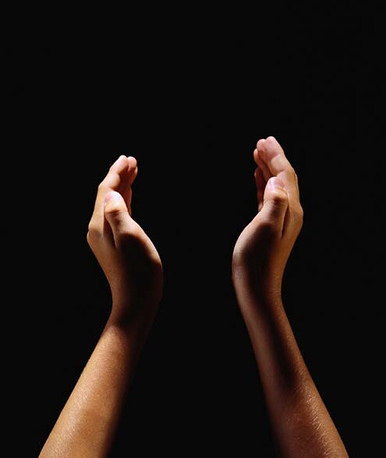
Gratitude is a pleasant state of mind in itself, rooted in the awareness of having been gifted, but it can also be a way of responding to God the Giver with thankfulness and generosity. Gratitude needs to be entertained though, dwelled with, so it becomes a habit of seeing and feeling and acting. And that takes practice — hopefully a pleasant practice.
What follows can be a ‘sit-down’ way of praying or a short response to experience as it occurs. The one feeds the other. It has its sources in Ignatius of Loyola’s Examen prayer, his Contemplatio ad Amorem and some of his ideas on storing up consolation. There are psychological resonances in Rick Hanson’s HEAL process which I talked about in an earlier post.
It is simple to explain as a response to experience as it takes place. We all react easily to negative experiences: they stir us up and stay with us. Spiritually, they make God harder to find and responding more difficult. We are just as often gifted with ‘positive’ experiences — I mean anything for which we feel grateful, however fleetingly, in the moment — from the birth of a child to the warmth of the sun on your face, from feeling part of a group to knowing you coped well with a conflict. Strangely, the positive experiences tend not to stick, we let them drift by, we don’t let them take root in us, we may even actively downplay their importance. We miss the grace and we miss an opportunity for a spiritual practice. Bad experiences can affect us in an instant but good experiences need a little time to sink in.
A practice of gratitude involves admitting such experiences when they happen, holding off any tendency to minimise them, but instead letting the experience grow, deepen, intensify. Instead of feeling a little enjoyment at the warmth of the sun, really let it take up the centre of your awareness for half a minute or more, revel in it, savour it, accept it, let it soak in. That in itself is gratitude — though words are important, we show gratitude best by whole-hearted enjoyment of the gift — but as the experience is savoured it can become the starting place for a conversation with God. How is God looking at you in your enjoyment? How does that change your feelings? How do you want to respond?
The whole thing might take a minute or two and you can even do it in the presence of others.
As a more ‘formal’ way of praying the practice has a lot in common with the Examen, or Examination of Consciousness — indeed it is usually listed as the second of the five steps in the Examen. Within the Examen exercise, however, the practice of gratitude is often rushed over as a prelude but it deserves and repays time in its own right.
For the space of ten or fifteen minutes (or maybe more) let your attention drift back over the experiences of the past day (or hour or whatever) and just notice any moments in which you felt gifted. These might be major or minor, they may be ones you were aware of at the time or ones that you only see now in hindsight. The aim is to follow your nose to one or two experiences of pleasure or joy or gift and to savour each in memory, letting the moment expand and deepen. Stay with it as long as it has ‘flavour’. Absorb it. Let it move you spontaneously to gratitude. Let your enjoyment of the experience be your gratitude to God. Perhaps ask yourself how God is looking at you as you remember and relive whatever it was. See what that stirs up in you and how you want to respond. If it feels right let a conversation develop with God — one friend to another, as Ignatius would say.
Sometimes you might find there is nothing really noticeable in your day. Don’t react badly to that realization: there are several things you can do. You could give yourself a little experience of pleasure or comfort, etc. by taking a drink of cool water, or tasting something good, or looking out the window, or … I can usually find a moment of calm and pleasure by filling and holding a hot water bottle! An alternative is to dip into deeper memories of gift. Today might have been lousy but there may be older memories that root you in a firmer truth. One that nearly always works for me is to place myself in one of the places that are sacred to me, places that are Holy Ground to me. Sometimes that will require more imagination then memory but that is fine.
The aim is to get your spirit into consolation, however briefly, because there you will meet the God who gives good things.
It is always good to end such an exercise in some ‘formal’ way, rather than just drifting out of it. Take your pick.